Recovery is just a phone call away. We’re here for you 24 hours a day, 7 days a week. Call (352) 771-2700
1
Act Fast – Limited Capacity
Recovery is just a phone call away. We’re here for you 24 hours a day, 7 days a week. Call (352) 771-2700
Act Fast – Limited Capacity
With the right treatment program at The Recovery Village Kansas City, recovery is possible for anyone. Our compassionate, evidence-based addiction and mental health treatment programs are personalized to your needs, and our facility and services support healing in all ways.


“Today, I don’t feel like I’m holding onto a cliff, waiting to fall off into relapse. I’m a good worker, friend, brother and son again.”
Chris Groves, The Recovery Village Columbus Alumni
The Recovery Village Kansas City is a physician-led rehab facility offering evidence-based and safe care for drug and alcohol addiction and mental health disorders. The Recovery Village Kansas City is part of the nationwide network of The Recovery Village, founded in 2013 to provide expert care for addictions. Our state-of-the-art 78-bed rehab facility is a comfortable, healing-focused environment.
For many patients struggling with a drug or alcohol addiction or mental health condition, a compassionate, evidence-based approach is best. The levels of care available at The Recovery Village Kansas City include medical detox, inpatient rehab for substance abuse treatment, and an inpatient residential program for those with mental health disorders.
During medical detox, patients living with addiction receive around-the-clock support, medical care and medications for withdrawal symptoms as needed.
Inpatient rehab is a high level of care, so patients live onsite. The environment is structured and entirely focused on healing from your addiction.
Inpatient rehab helps patients focus entirely on addressing their mental health condition. They live onsite at our professional treatment center, then transition to outpatient care in the community.
It’s very common to have co-occurring mental health disorders along with an addiction to drugs or alcohol. Dual diagnosis care treats both simultaneously to optimize your outcomes in recovery.
After completing a rehab program, you receive continued support through treatment provider referrals, information about support groups, relapse prevention plans and access to additional resources.
For severe opioid or alcohol use disorders, approved medications may be beneficial when medically appropriate. Medication-assisted treatment reduces the risk of relapse and cravings.
During medical detox, patients living with addiction receive around-the-clock support, medical care and medications for withdrawal symptoms as needed.
Inpatient rehab is a high level of care, so patients live onsite. The environment is structured and entirely focused on healing from your addiction.
Inpatient rehab helps patients focus entirely on addressing their mental health condition. They live onsite at our professional treatment center, then transition to outpatient care in the community.
It’s very common to have co-occurring mental health disorders along with an addiction to drugs or alcohol. Dual diagnosis care treats both simultaneously to optimize your outcomes in recovery.
After completing a rehab program, you receive continued support through treatment provider referrals, information about support groups, relapse prevention plans and access to additional resources.
For severe opioid or alcohol use disorders, approved medications may be beneficial when medically appropriate. Medication-assisted treatment reduces the risk of relapse and cravings.
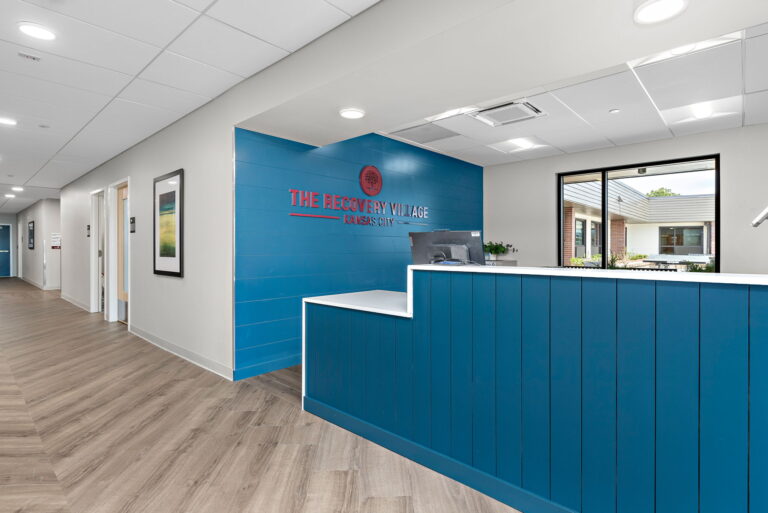
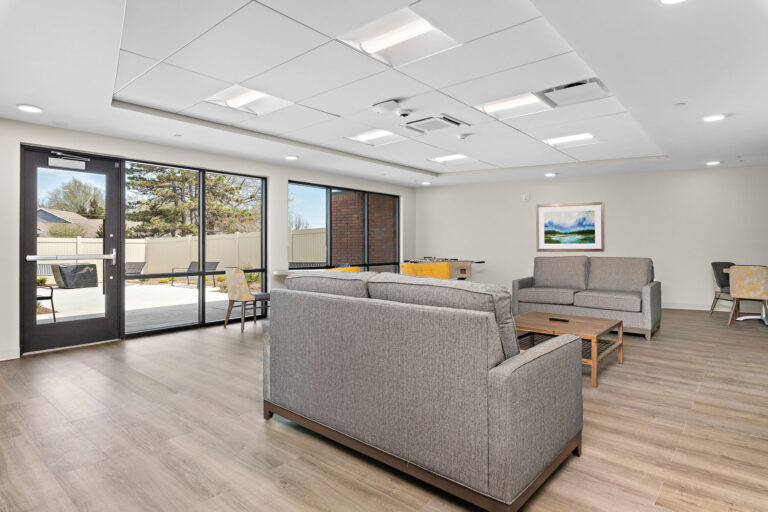



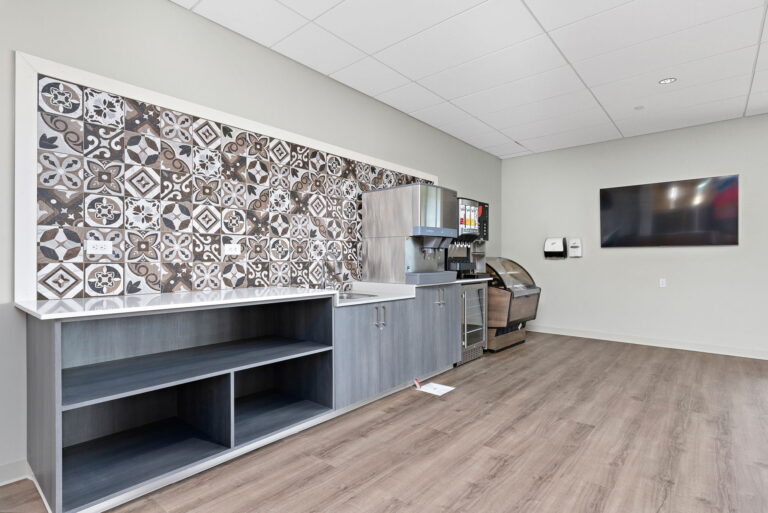








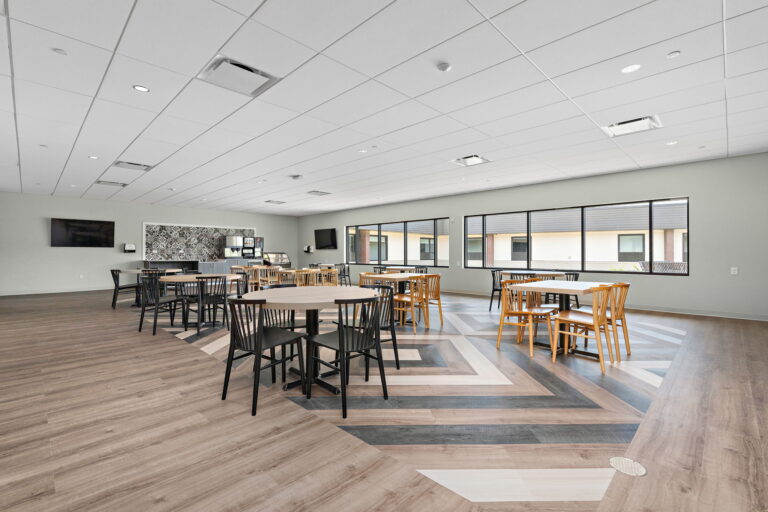

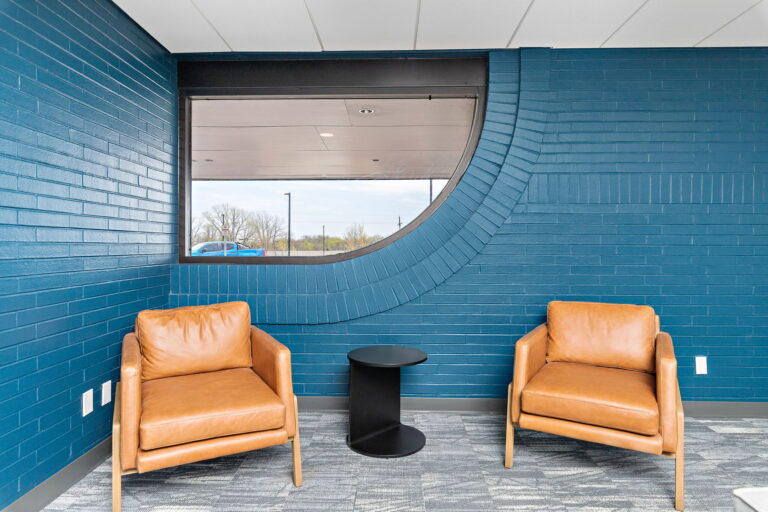



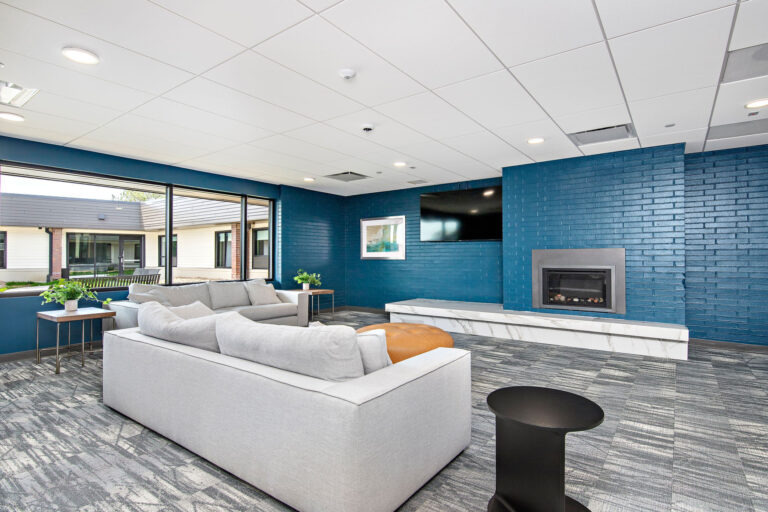

























Available amenities and activities may differ depending on the level of care.
The Recovery Village Kansas City is in-network with most major insurance carriers including Aetna, Blue Cross Blue Shield, Cigna, Humana, and United.
If you don’t have health insurance or your coverage is limited, that shouldn’t prevent you from accessing care. The Recovery Village Kansas City offers private pay options to accommodate your needs.
We are simplifying the health insurance verification process with our online system, allowing you to verify your benefits in seconds. By streamlining the insurance verification process, we connect you to the care you need, as quickly as possible.
Our online insurance verification tool is HIPAA-compliant, so your information stays completely confidential.
Most health insurance policies will partially or completely cover addiction or mental health treatment services. The Recovery Village Kansas City accepts most major insurance plans except Medicare and Medicaid. Our team can work with you to verify what your insurance may cover. If services aren’t covered, we can help you locate other facilities that may accept your policy, or we can work together on private pay options.
Since our treatment programs are customized to your individual needs, the treatment length can differ. For those with substance use disorder, factors in how long addiction treatment takes include the program you choose and the severity of your addiction. Most people’s medical detox stays take 7–10 days. Inpatient substance abuse treatment programs usually last 12-14 days. Subacute inpatient mental health treatment often lasts 3-4 weeks. Aftercare services are an indefinite source of support for your continued recovery.
Certain national laws protect you if you go to rehab, so you don’t have to fear losing your job. The Americans with Disabilities Act (ADA) and the Family and Medical Leave Act (FMLA) are two such laws. While these protections exist, there are limitations that could mean you don’t qualify. If, for example, you use substances actively while at work in a drug-free workplace, you could lose your job.
Patients can choose to make a safety call to loved ones upon arrival. No cell phone usage is allowed during the detox period. No cell phone usage is allowed during the first 24 hours of primary mental health care. Following the cell phone-free period, cell phone usage is only allowed outside of the hours of 9 AM and 3 PM to avoid interruption of treatment time. Upon admission, all personal phones will:
The Recovery Village aims to improve the quality of life for people struggling with a substance use or mental health disorder with fact-based content about the nature of behavioral health conditions, treatment options and their related outcomes. We publish material that is researched, cited, edited and reviewed by licensed medical professionals. The information we provide is not intended to be a substitute for professional medical advice, diagnosis or treatment. It should not be used in place of the advice of your physician or other qualified healthcare provider.
Colorado
Florida
Georgia
Indiana
Maryland
Missouri
Ohio
Oregon
New Jersey
Washington

Our state-specific resource guides offer a comprehensive overview of drug and alcohol addiction treatment options available in your area.